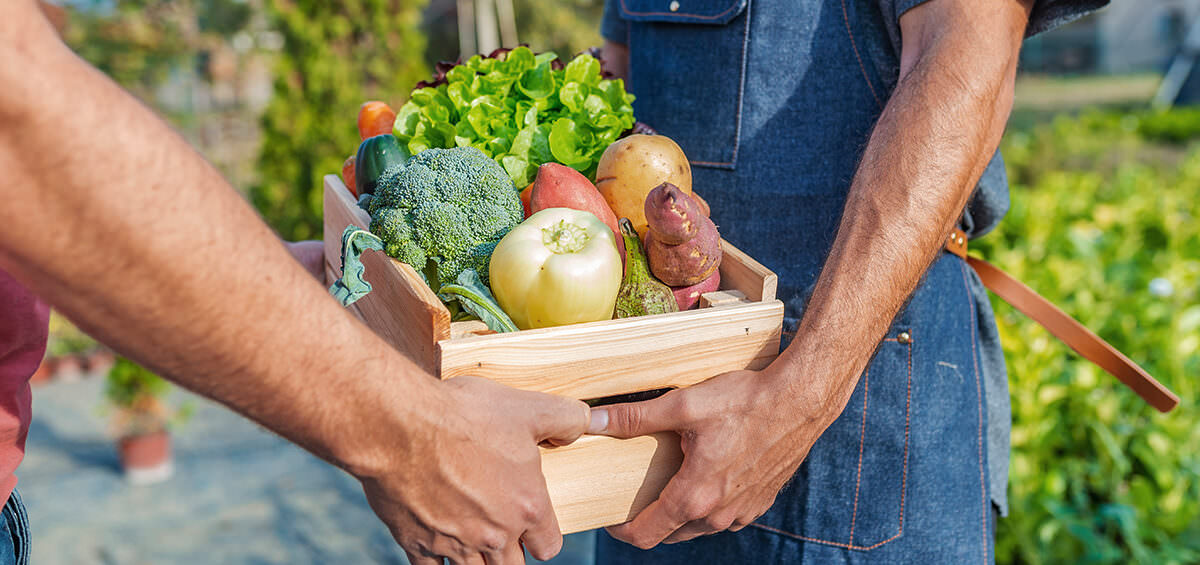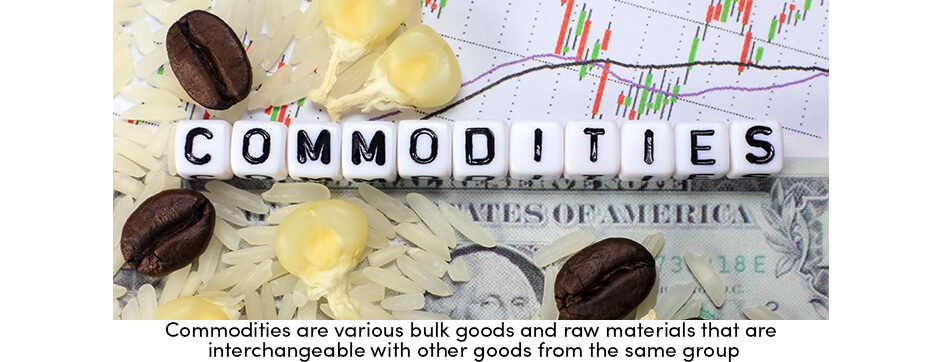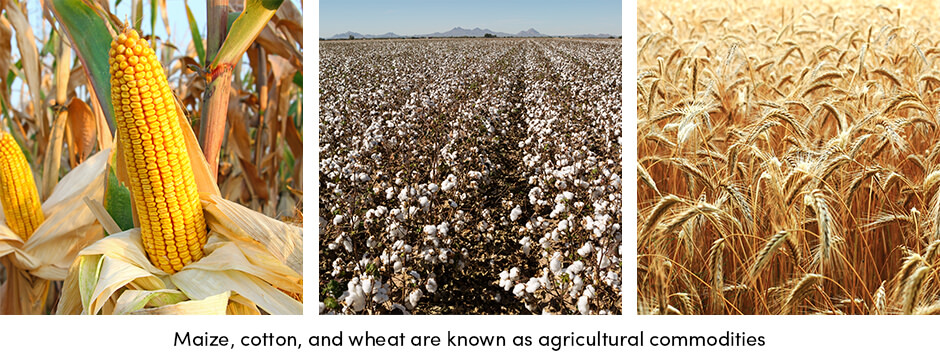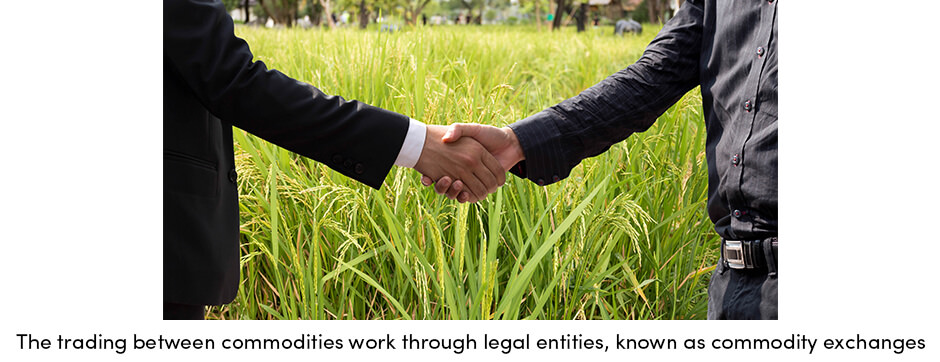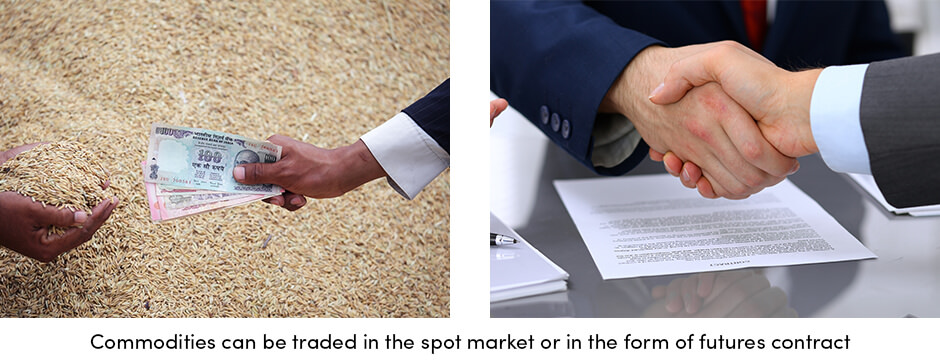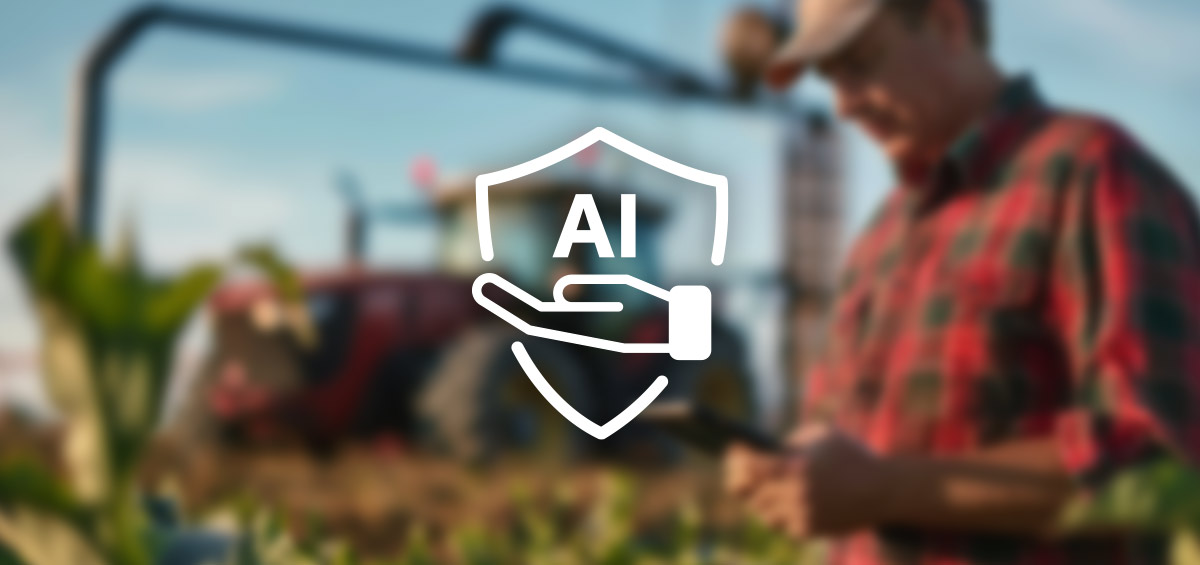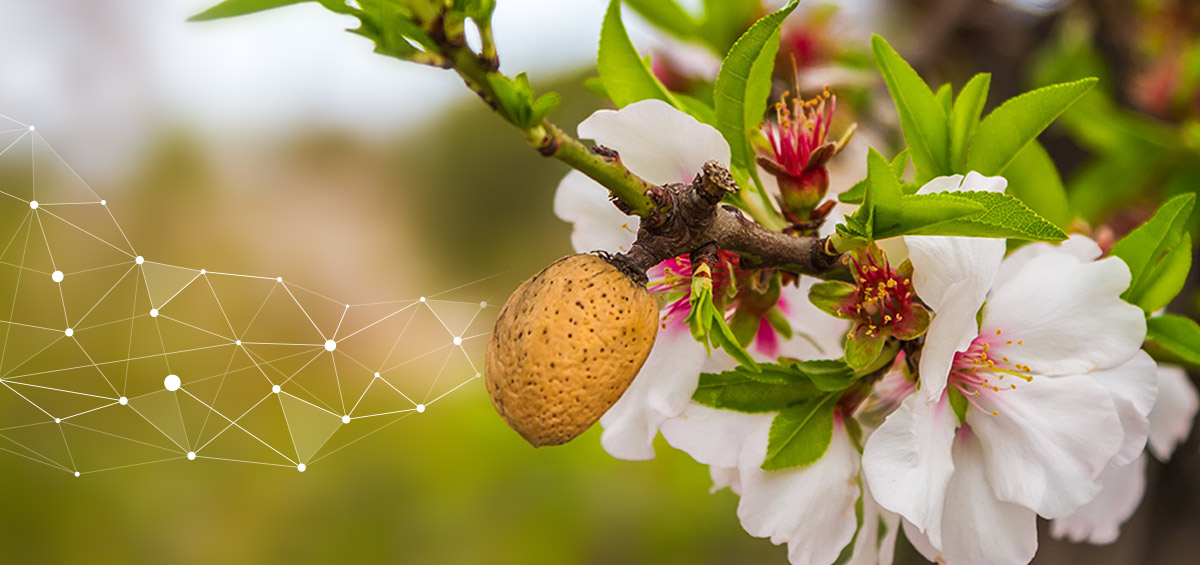Commodity exchange is one of the most important economic terms that plays a vital role in the global economy by providing an organized marketplace for the exchange of various commodities such as grains, sugar, cocoa, livestock, oil, gas, metals, and others.
In order to understand how agricultural commodity exchange works, it’s essential to understand the actual meaning of the term “commodities”.
Generally, commodities are marketable goods and raw materials, usually traded in bulk. Commodities can be classified into four main groups:
- Agricultural commodities (corn, soybean, wheat, rice, cocoa etc.)
- Livestock and meat (i.e. livestock cattle)
- Metals (gold, silver, platinum, copper)
- Energy (petroleum, crude oil)
The main characteristic of commodities is that they are interchangeable with other goods from the same group. In addition to that, commodities are uniform in their quality. In practice, this means that commodities which are in the same group and quality grade are very similar and it’s hard to find a difference between their producers. For instance, it’s hard to spot the difference between wheat from one producer and wheat from another producer.
“Commodities are bulk goods and raw materials that are interchangeable with other goods from the same group”
How Commodity Exchange Works?
Commodity market works just like any other market; it can be a physical or virtual place where commodity trading occurs. However, the commodity market is characterized by its strong regulations and rules. The trading and exchange of commodities work through legal entities, known as commodity exchanges.
Commodity exchange is an association, company, or any legal corporate body which provides an organized marketplace for trading in commodities. Worldwide there are many commodity exchanges specialized in operating with certain commodities. The Chicago Board of Trade is one of the major and most known commodity exchanges operating with agricultural commodities such as corn, soybeans, wheat, oats, and rice.
“Commodity exchange is a legal entity which provides an organized marketplace for trading in commodities”
There are two ways how commodities can be traded:
- Trading in the spot market; which means that the commodities are exchanged immediately when setting a deal, either for cash or other goods. The price is set according to the current market prices and delivery occurs immediately or a few days later.
- Trading in the form of futures contract; which means that the buyer and seller instead of goods, exchange the contract which obligates them to buy or sell the commodity on a specific date in the future and at a particular price.
In case the price for certain commodity changes, the contract obligates both parties to buy or sell a commodity at a predetermined price. What’s interesting regarding the futures commodity exchange, is that futures contracts are usually offset before their expiration, and therefore the delivery of commodity rarely occurs. In other words, trading in futures contracts serves rather for price speculations and risk management, than for the actual exchange of goods.
Understanding the key processes in the market is crucial for farmer’s success. After all, there are many farmers who use commodity exchange either to sell their products or as a risk management tool that will help them face price fluctuations.
If you want to learn more about the agricultural market and other interesting terms such as market prices, futures contracts, and hedging, keep reading our articles and master your market knowledge.
